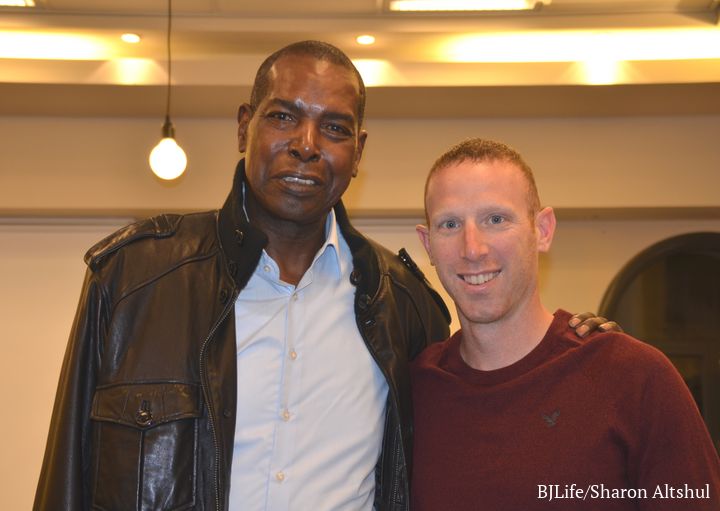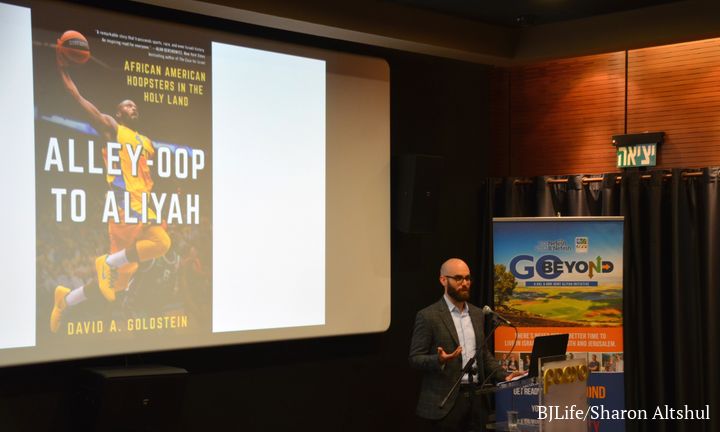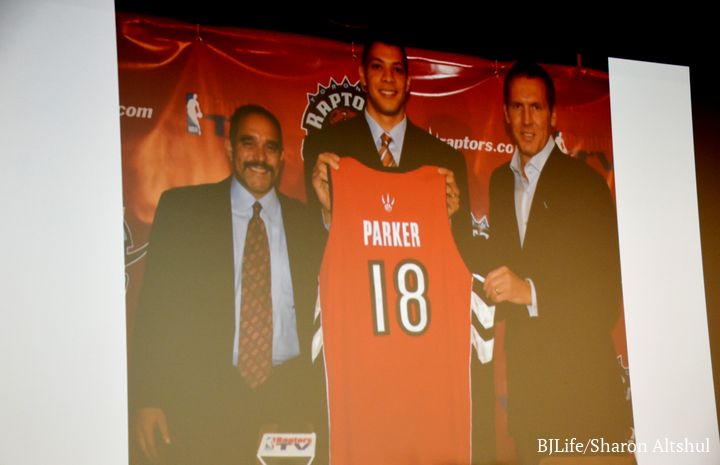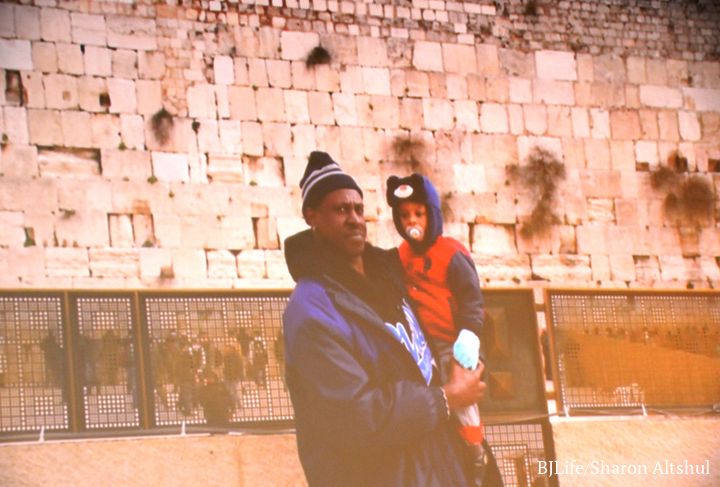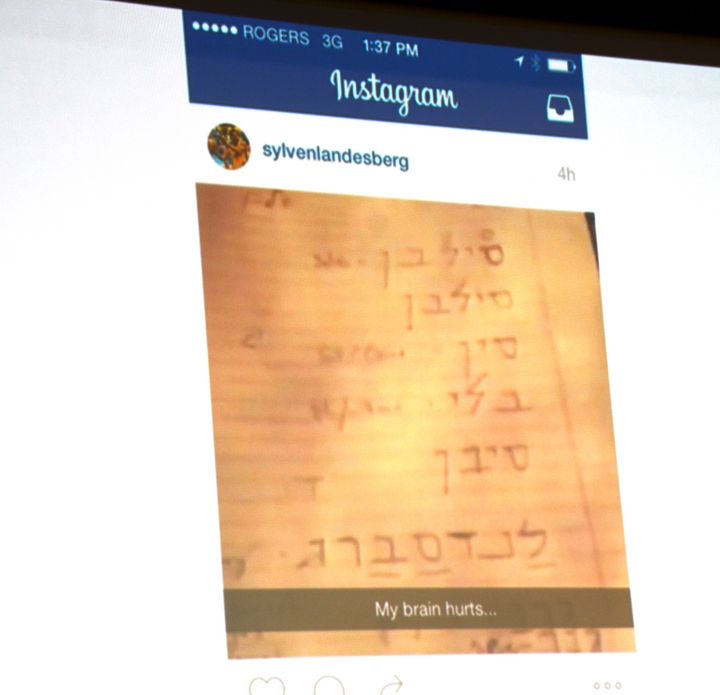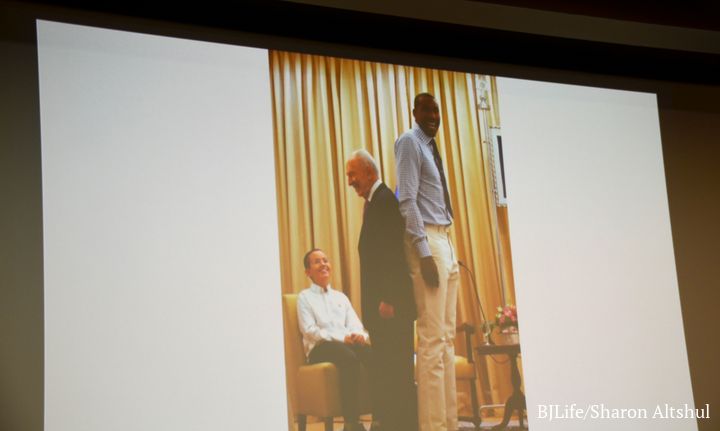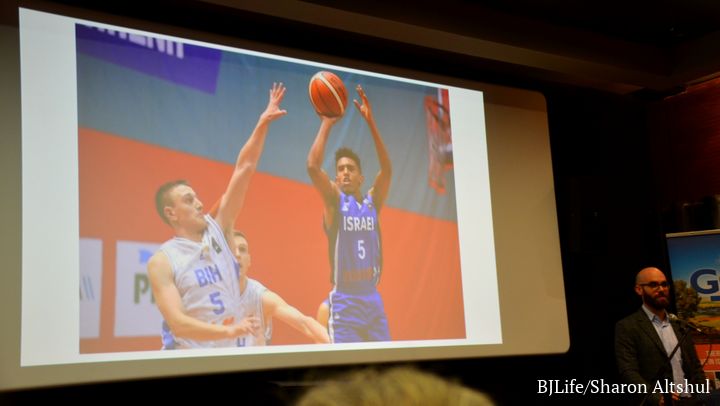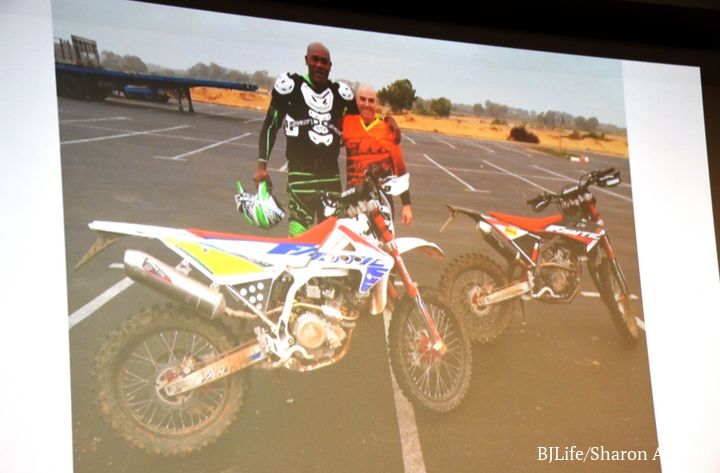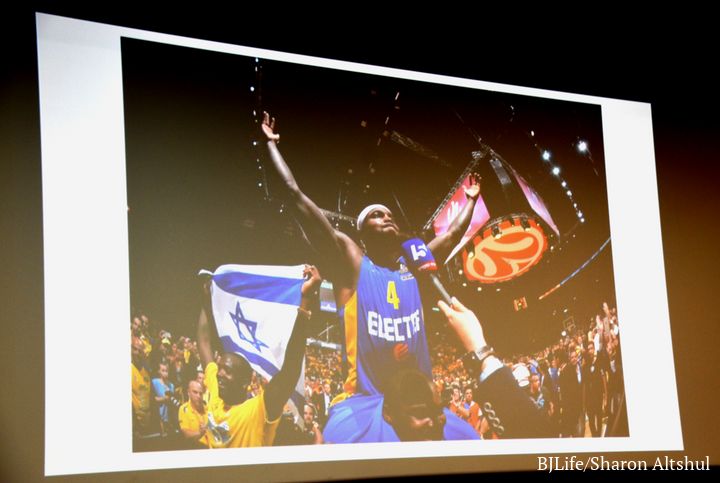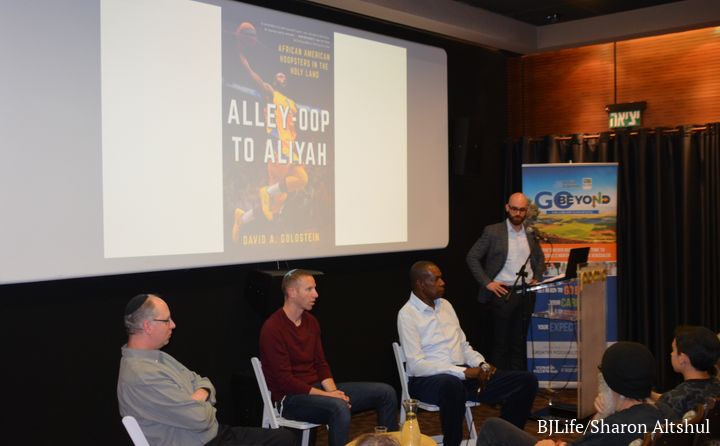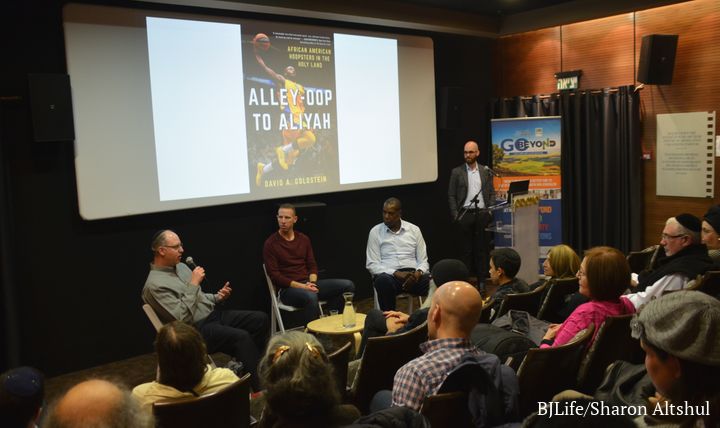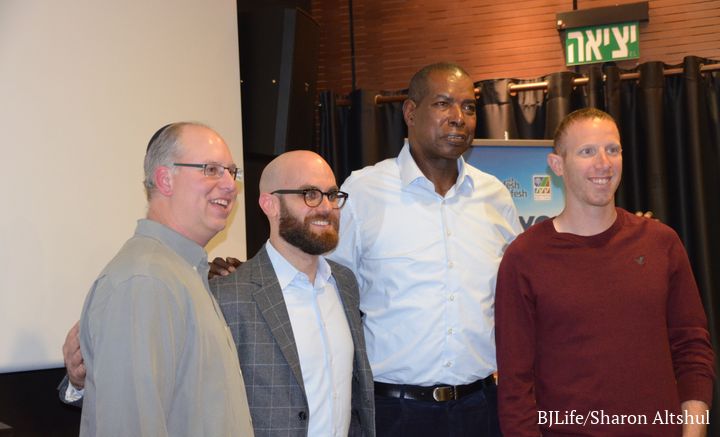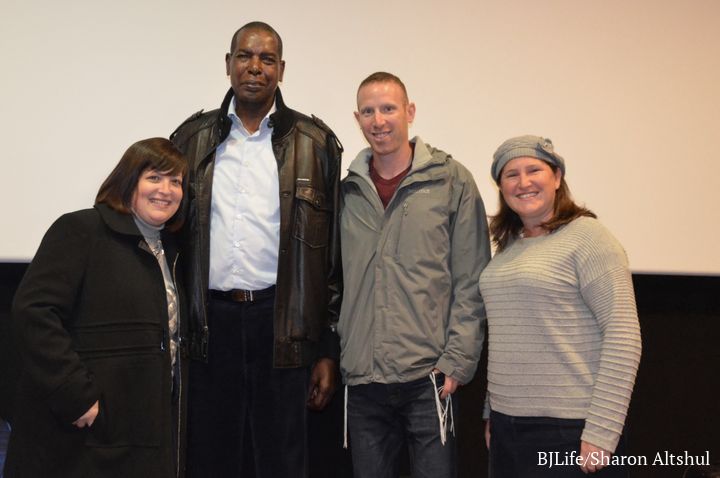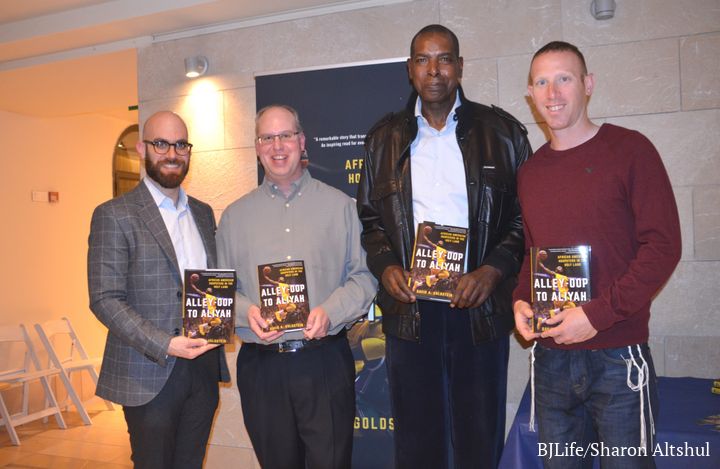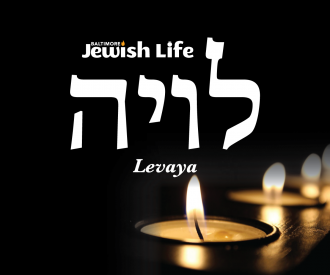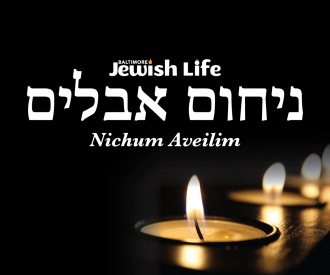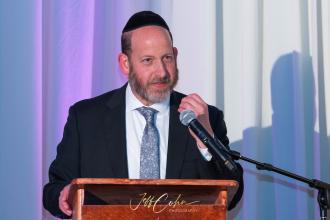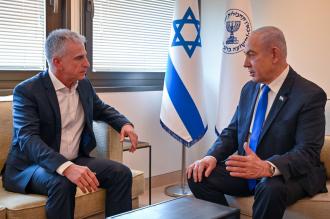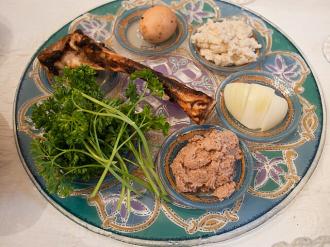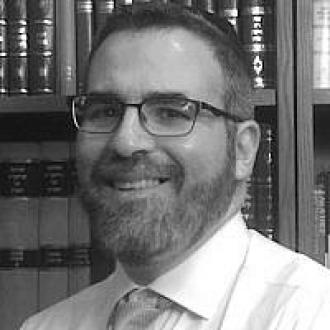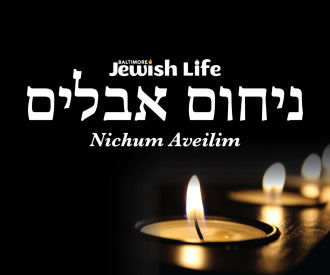Jerusalem, Israel - Feb. 13, 2018 - Tamir Goodman, Baltimore's legendary Orthodox basketball player, went on to play at Towson University after his days at TA, becoming known as the "Jewish Jordan." Goodman played on an Israeli professional team for nearly a decade after making aliyah.
On Tuesday evening, Goodman joined David A. Goldstein, at the Cinematheque in Jerusalem, Israel, for a Nefesh B'Nefesh and Fun in Jerusalem sponsored event to promote Goldstein's book, "Alley-Oop to Aliyah."
More than 800 African-American basketball players have come to play in Israel. Some played for a short time, while others have stayed for decades, some players converted to Judaism. Aulcie Perry, played for the NBA, came to play for Maccabi Tel Aviv in 1976, converted to Judaism, and made aliyah. Some of the players who stayed have raised families, with their children now playing on Israeli teams.
In Israel, "players are embraced in a unique way. By and large they don’t feel racism. They feel accepted, and want to come even though they make less money," said Goldstein.
Connections remain strong. One example Goldstein gave, Anthony Parker chose the number 18, chai, when he rejoined the Raptors after spending time playing in Israel, as a tribute to Israel and the Jewish people. Players enjoy the food, culture, the holidays and the nightlife in Israel. A devout Christian player said, "there is nothing like leaving practice and driving past a sign that says right turn to Bethlehem."
Fred Campbell, wanted to see the world, playing every year in a different country. When Israel was suggested, he said, "no, there was fighting there." "Come for four days," he was told. He stayed to play in Israel.
Goldstein spent over ten years researching his book and interviewing players. He shared slides of photos and stories with the audience.
Maccabi Tel Aviv basketball started in the mid-1930's, as part of the Maccabi Tel Aviv Sports Club, which had been founded in 1906. Instead of blue and white for its colors, they picked blue and yellow. Yellow to show unity with those wearing yellow stars at the time in Europe. After the magnitude of the Shoah, the loss of 6 million, the team decided to keep the yellow as a memorial to those killed.
Perry was on a panel with Goodman and Josh Halickman, nicknamed "The Sports Rabbi." During the panel discussion, Perry said he planned to come for two months. "The first year was unbelievable, the whole country was behind us. There was only one TV station at the time." During the championship game, people were advised to unplug all appliances not in use. They were afraid everyone turning on their televisions to watch the game would be too much for the power grid to handle.
Growing up in a Southern Baptist family, Perry said he did not get answers to his questions. "When he started his conversion, he learned with his Rabbi 5 days a week, for 4 months. If the Rabbi did not have answers to his questions, he would ask a Rabbi who knew the answers." After all these years though. Perry said he cannot get used to driving here.
Goodman described his early days playing basketball in Baltimore. He would hang around the games until 8:00 pm. After dribbling on the side, someone would leave and he would get a chance to play on a team, at least for a short time. He was 16 when he went to an invitational basketball camp and was asked, "Are you lost." Goodman shared some of his positive Shabbos experiences with his mostly African-American teammates.
As Halickman stated, "sports engage people, it is the greatest equalizer."
The African-American basketball players have become great ambassadors for Israel, as they take positive feelings back with them and share their good experiences.

